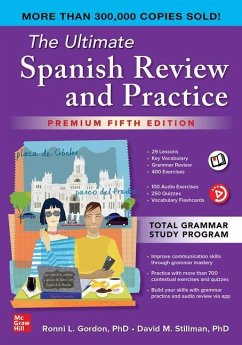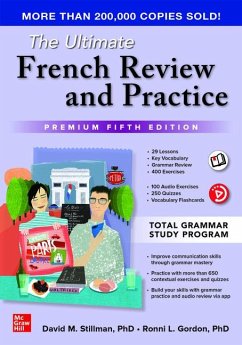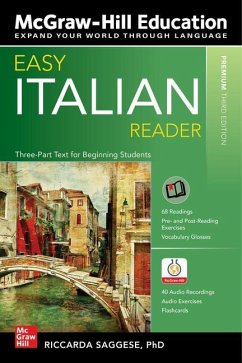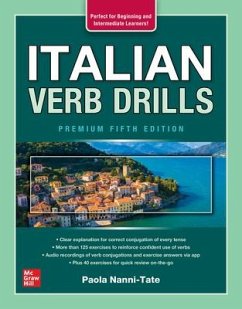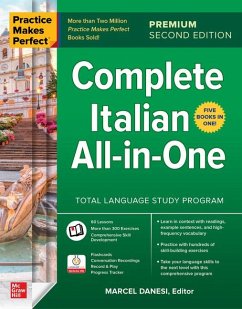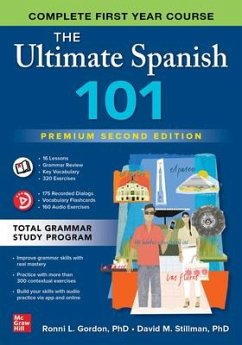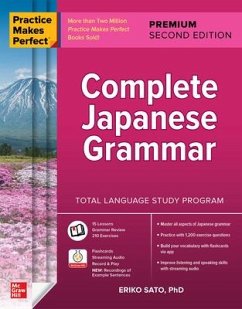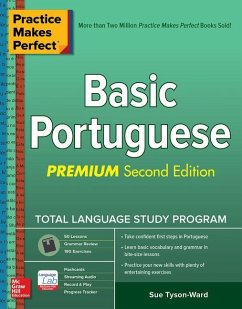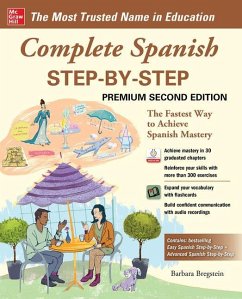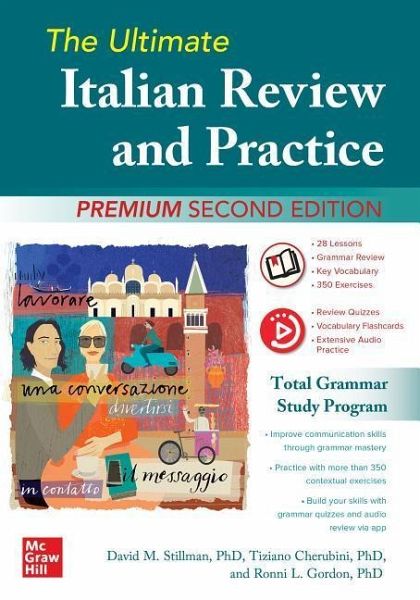
The Ultimate Italian Review and Practice, Premium Second Edition
Versandkostenfrei!
Versandfertig in 2-4 Wochen
22,99 €
inkl. MwSt.

PAYBACK Punkte
11 °P sammeln!
Gain the essential grammar skills needed to communicate more confidently in Italian! Developing a good grasp of grammar is key to mastering a foreign language. This popular guide provides comprehensive coverage of all the elements of Italian grammar. Each grammatical concept is clarified and then illustrated with lively example sentences. More than 350 exercises provide you with plenty of practice to apply this knowledge in everyday conversation. The exercises are contextualized with scene-setting instructions in Italian to ensure relevance to practice conversational and writing requirements. ...
Gain the essential grammar skills needed to communicate more confidently in Italian! Developing a good grasp of grammar is key to mastering a foreign language. This popular guide provides comprehensive coverage of all the elements of Italian grammar. Each grammatical concept is clarified and then illustrated with lively example sentences. More than 350 exercises provide you with plenty of practice to apply this knowledge in everyday conversation. The exercises are contextualized with scene-setting instructions in Italian to ensure relevance to practice conversational and writing requirements. With this edition, you'll also have access to the unique McGraw-Hill Education Language Lab app featuring extensive audio recordings and interactive quizzes. The app makes it easy to study on-the-go, test your comprehension, and hone your new language skills. The Ultimate Italian Review and Practice features: ¿Clear, concise explanations of all the grammar topics, illustrated with examples from everyday life ¿More than 350 engaging exercises with an answer key to help you master Italian grammar and vocabulary ¿Vocabulary boxes providing the terms and expressions that will increase your ability to express yourself ¿Cultural notes that enhance the effectiveness of the grammar exercises while acquainting you with contemporary Italy ¿Extensive audio exercises and quizzes available via the McGraw-Hill Education Language Lab app



